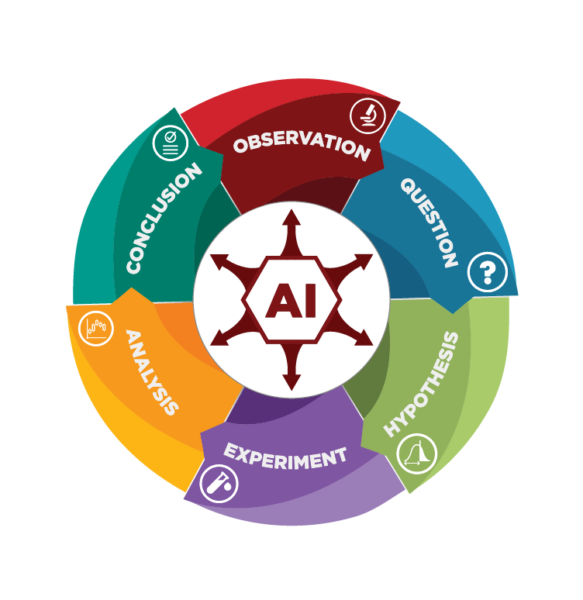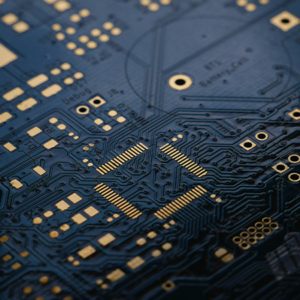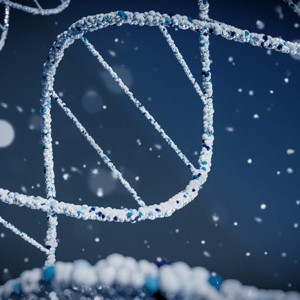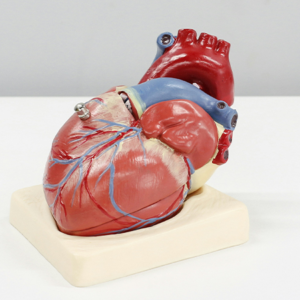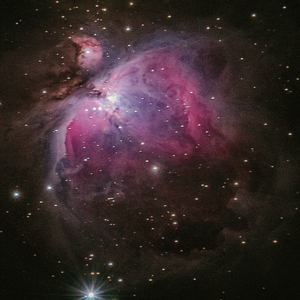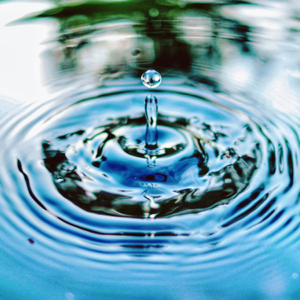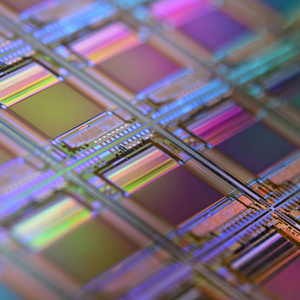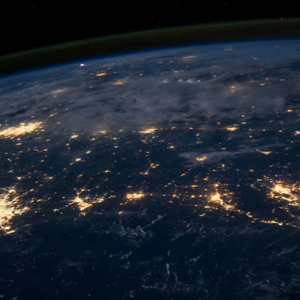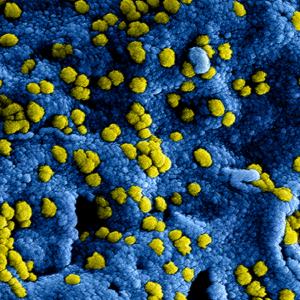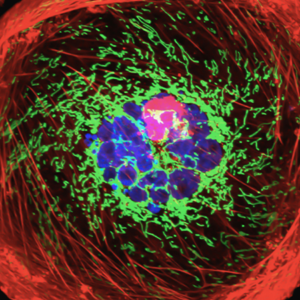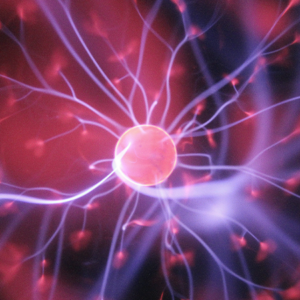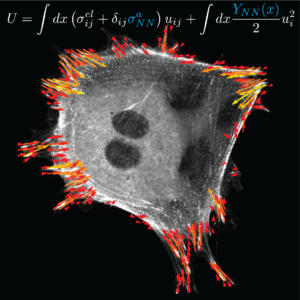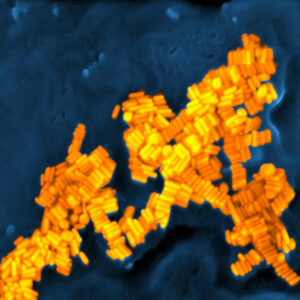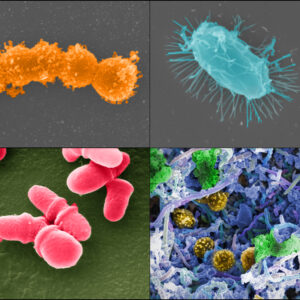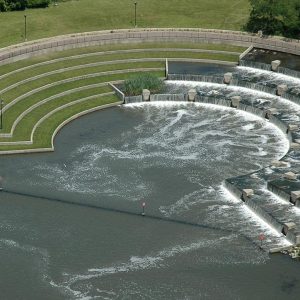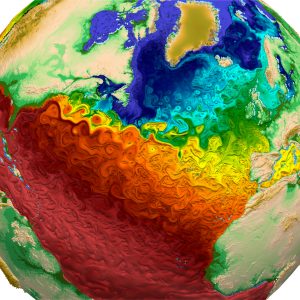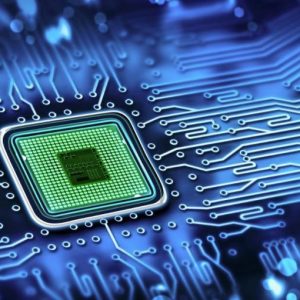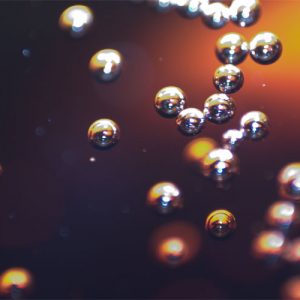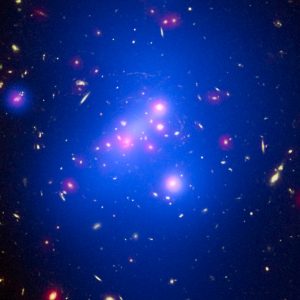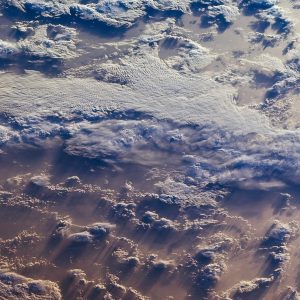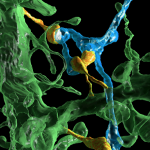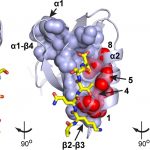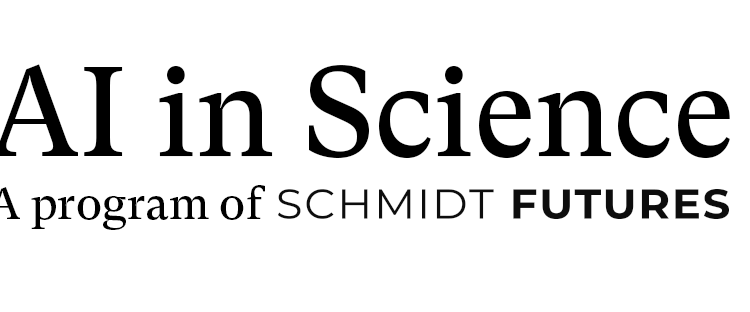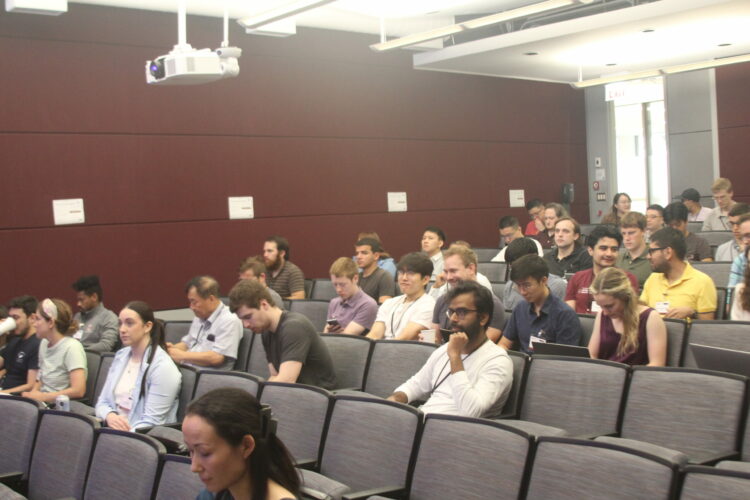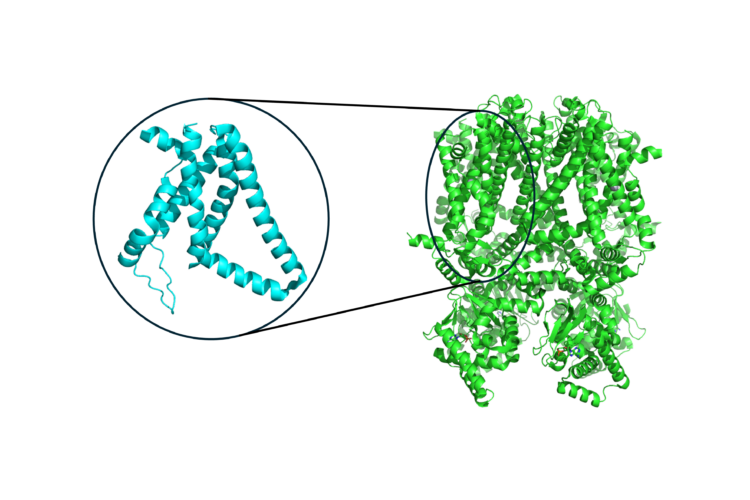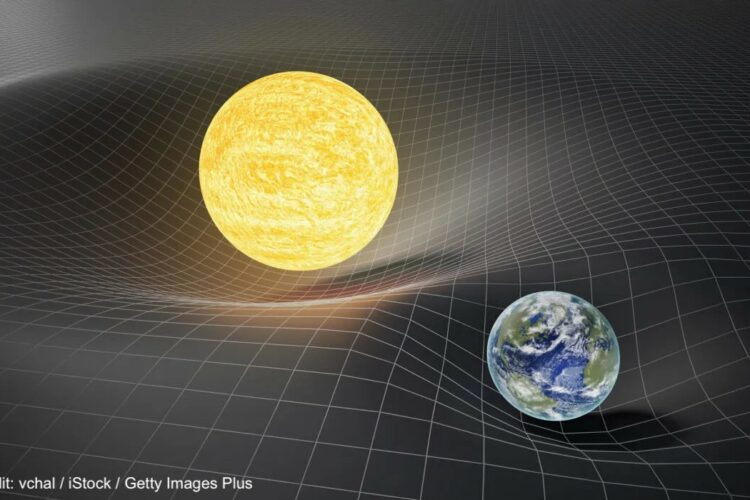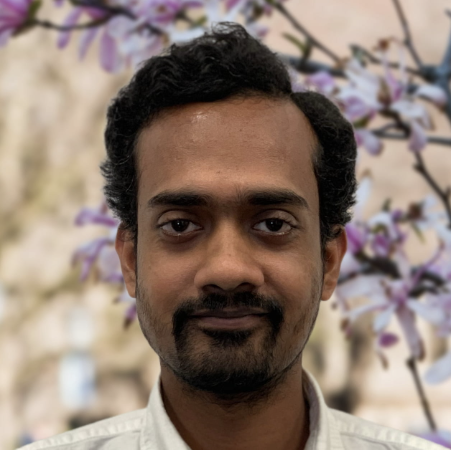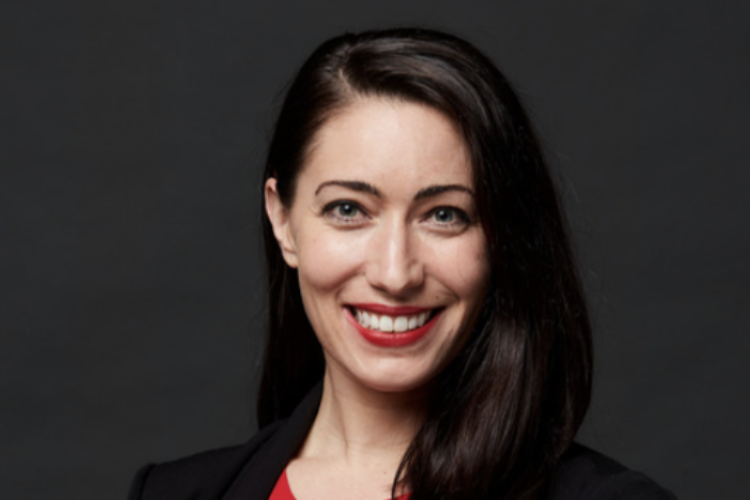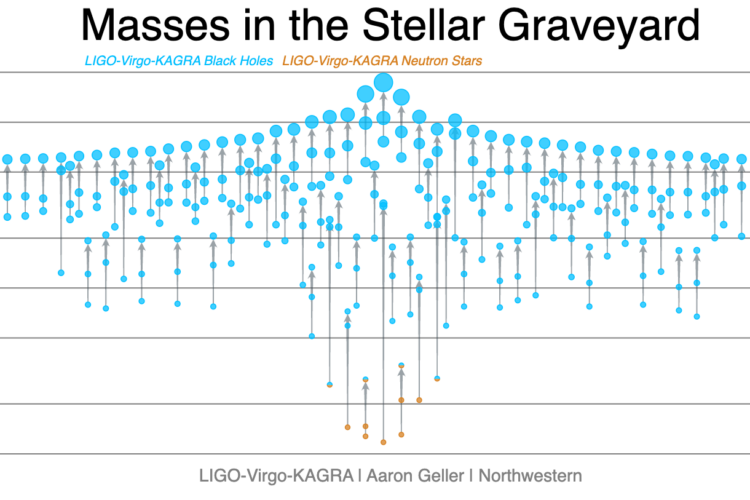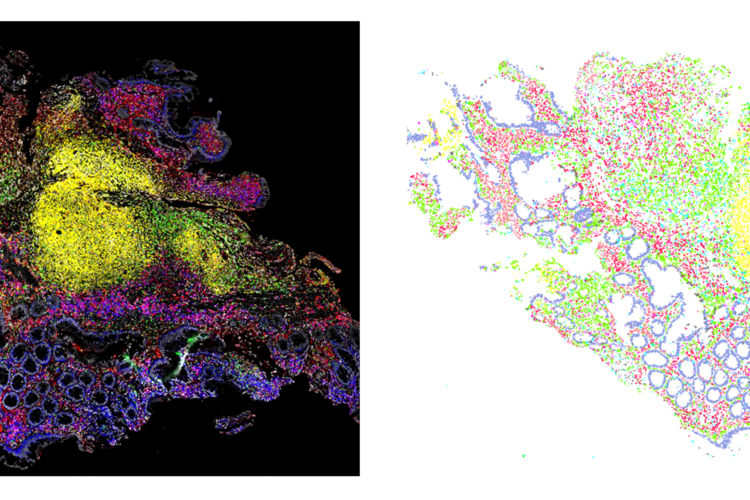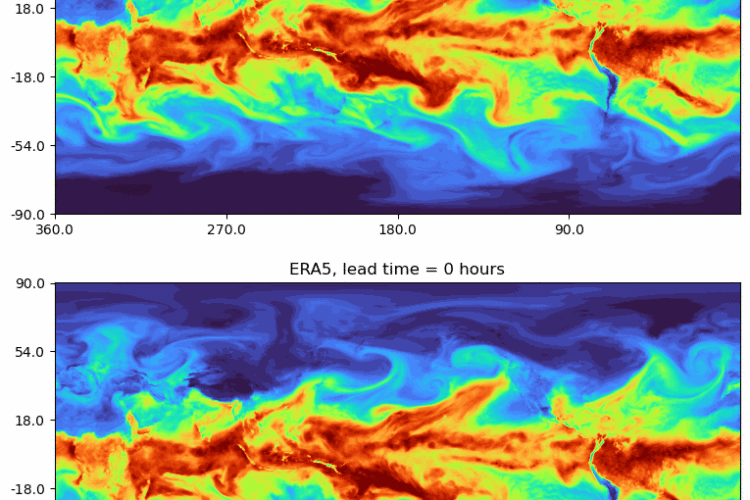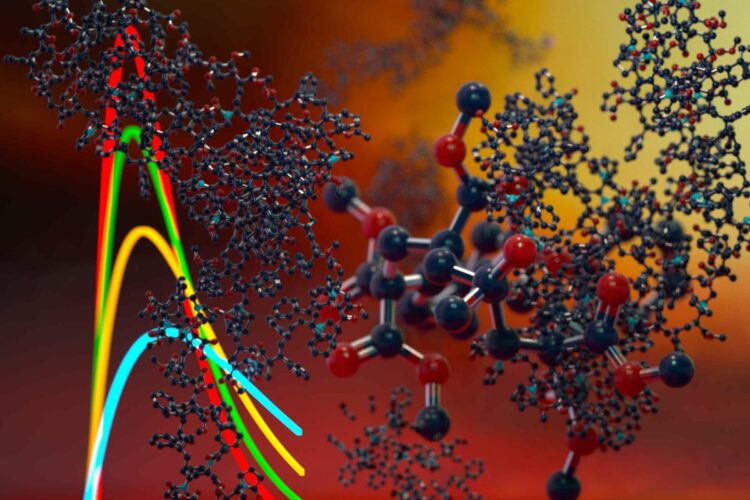AI + Science
Overview
Artificial intelligence (AI) and machine learning (ML) will fundamentally change the nature and pace of scientific discovery.
Widespread adoption of AI in the sciences has the potential to integrate scientific inquiry with modes of hypothesis generation, data analysis, simulation, and testing that will transform our capacity to address scientific problems that currently appear intractable.
Investments in AI & ML foundations are essential for high-quality, reproducible,AI-enabled scientific research.
Successfully applying AI to science requires a radical rethinking of how best to pose and answer research questions. The University of Chicago is ideally suited to accelerate this transformation because of its expertise in training scholars in a mode of inquiry that is intensely rigorous, theory-driven, systematic, interdisciplinary, and intrinsically open to critique. The UChicago Approach has always been to question fundamental assumptions, frame problems at as deep a level as possible, and develop novel theoretical and methodological foundations that push the boundaries of new disciplines.
The rise of AI in science and engineering presents both a remarkable opportunity and a profound challenge to human-centered modes of inquiry. Beyond training scientists to effectively use existing AI tools, the UChicago vision of accelerating AI+STEM research includes systematically reimagining the role of AI in the scientific discovery process.
Research Themes
AI uncovering new laws of nature: Given observations of a system, use AI to uncover the governing physical laws. For example, physicists are developing novel tools to learn equations that describe physical forces exerted by and within cells using videos of cells, overturning classical biophysical models. Similar efforts focus on learning the dynamics of bacterial communities so we can better manage resilient ecologies in a changing environment.
AI guiding scientific measurement: Use AI to design better experiments, simulations, and sensors. Particle accelerators and sky surveys are just two examples of measurement systems that collect vastly more data than can be preserved. With AI-enabled real-time data analysis, we can rapidly filter data with dramatically higher accuracy. AI methods can also be used to help navigate a broad landscape of possible molecular structures to design efficacious and environmentally sustainable materials (such as batteries) or new proteins.
Physics-informed machine learning: Optimally leverage physical models and experimental or observational data. Examples include learning new climate forecasters, using machine learning together with physics-based models to uncover material structure and properties, and performing medical image reconstruction with unprecedented speed and accuracy.
Scientific discovery advancing AI frontiers: The AI+Science Initiative will develop new AI theories, methods, and open-source software tools inspired by scientific settings that will be able to simultaneously solve fundamental challenges across many disciplines. Examples include machine learning on graphs, neural networks for studying differential equations, generative models for science, biologically-inspired AI approaches informed by neuroscience, joint representations of data from disparate sources, and calibration and inference methods for quantifying the uncertainty associated with learned models.
AI+Science Spring 2023 Conference
The University of Chicago and the California Institute of Technology are centers of gravity for the study, application, and use of AI and Machine Learning to enable scientific discovery across the physical and biological sciences, advancing core AI principles, and training a new generation of interdisciplinary scientists. The University of Chicago and Caltech Conference on AI+Science, sponsored by the Margot and Tom Pritzker Foundation, advanced this scientific and technical pursuit and demonstrate the leadership of UChicago and Caltech in this space. This event brought together an elite and diverse cohort of leading researchers in core AI and domain sciences to lead conversations and drive partnerships that will shape future inquiry, industry investment, and entrepreneurial opportunities.
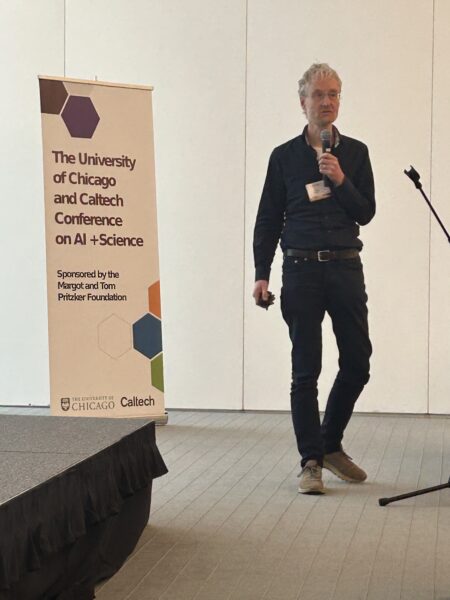
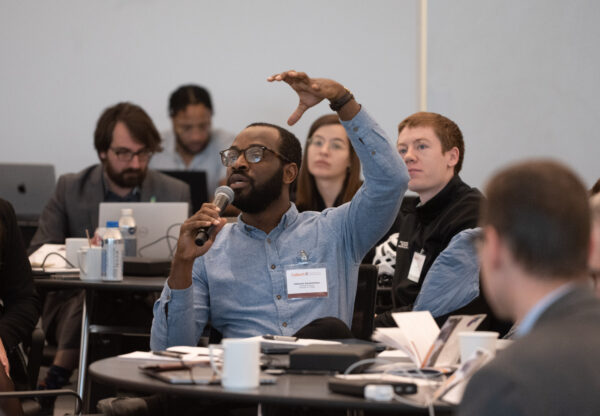
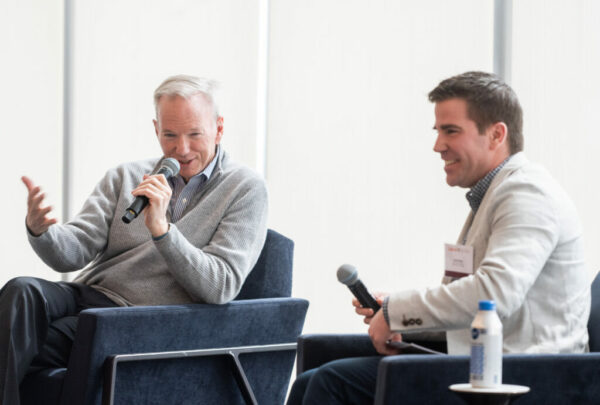
Schmidt Postdoctoral Fellows
The Eric and Wendy Schmidt AI in Science Postdoctoral Fellowship, a program of Schmidt Futures, at the University of Chicago trains scholars who seek to advance and accelerate the adoption of artificial intelligence (AI) in the natural sciences. The rise of AI in science and engineering presents both a remarkable opportunity and a profound challenge to human-centered modes of inquiry, including not only data analysis, but also the design of experiments, the formulation of new hypotheses, and the revelation of natural laws. Given the cross-disciplinary nature of AI research in science, Fellows are offered freedom and independence in pursuing their disciplinary research integrating AI methods, including the flexibility to change or expand their research focus and to work with multiple research groups while at the University.
This unique program is part of an engaged, cross-disciplinary AI and science community that includes departments across the UChicago campus as well as Argonne National Laboratory, Fermi National Accelerator Laboratory, and the Marine Biological Laboratory.
Fellows have the opportunity to pursue original research on significant questions in AI and science. They form a cohort of top scholars across the natural sciences engaging in joint training and research activities. Fellows receive the training in AI methods necessary for conducting their research. Drawing on the University’s top-ranked programs, world-renowned faculty, and vibrant data science ecosystem, this program allows postdoctoral fellows to engage in field- defining research.
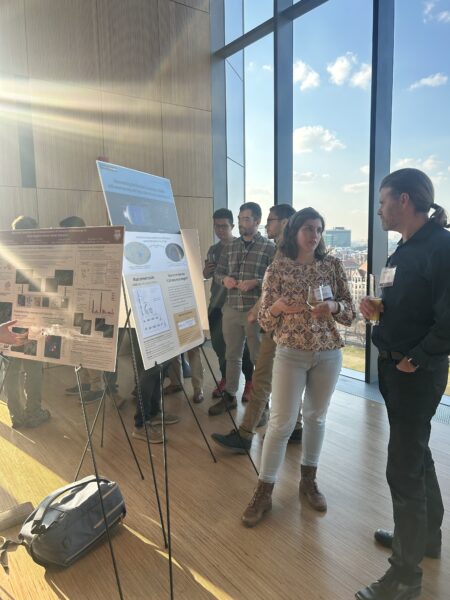 .
. 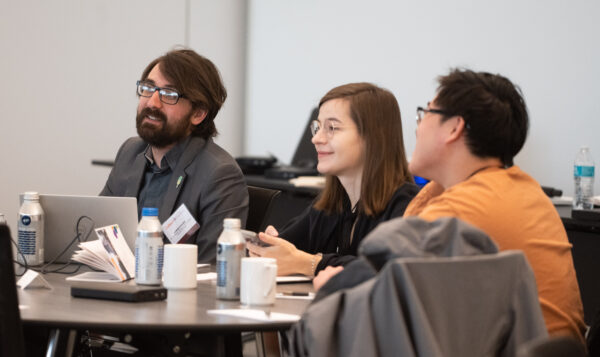
AI+Science Schmidt Fellows Speaker Series
Fellows are fully engaged in several initiatives geared towards scholarly and networking enrichment at the University of Chicago. To this effect, they are launching the AI+Science Schmidt Fellows Speaker Series parading both local and external presenters who are expert researchers routinely using Artificial Intelligence (AI) tools and Machine Learning (ML) to design and conduct their research experiments in their specific field.
Here is the list of confirmed speakers for this Winter/Spring 2024:
| April 2 | Andrew Ferguson (UChicago) |
| April 9 | Debra Audus (NIST) |
| April 16 | Madeleine Torcasso (UChicago) |
| April 23 | Ritesh Kumar (UChicago) |
| April 30 | Bryce Meredig (Northwestern and Citrine Informatics) |
| May 7 | Nafiseh “Cati” Mollaei (UChicago) |
Agenda
4:30pm – 5:15pm: Presentation
5:15pm – 5:30pm: Q&A
5:30pm – 6:00pm: Reception
Location: William Eckhardt Research Center, Room 401
2024 AI+Science Summer School
Following a successful AI+Science Summer School in 2022 and 2023 with a total of 208 participants from 66 research institutions and industry, the 2024 AI+Science Summer School will be held from July 15th – 19th, jointly hosted by the Data Science Institute (DSI), the Eric and Wendy Schmidt AI+Science Postdoctoral Fellowship Program, and the Institute for Mathematical and Statistical Innovation (IMSI) at the University of Chicago. This year’s speakers will focus on applications of AI and Machine learning in core areas of domain science – genetics and physics, materials and chemistry, energy sciences, climate sciences, and bioinformatics. Lectures and tutorials will focus on some of these areas: Generative models, Representation learning, Label-efficient learning, Simulation-based inference and other inverse problems, and Uncertainty quantification. The goal of this yearly program is to introduce a new generation of diverse interdisciplinary graduate students and researchers to the emerging field of AI+Science. We also hope this program can build community and spur new research directions focused on AI-enabled scientific discovery across the physical and biological sciences.
2024 Presenters:
Muratahan Aykol, Google Deep Mind
Michael Brenner, Harvard
Pedram Hassanzadeh, University of Chicago
Jennifer Ngadiuba, Fermi National Accelerator Laboratory
Daniel Schwalbe-Koda, UCLA
Srijit Seal, Harvard
Sunganya Sivagurunathan, Harvard
Tess Smidt, MIT
Zachary Ulissi, Carnegie Mellon University
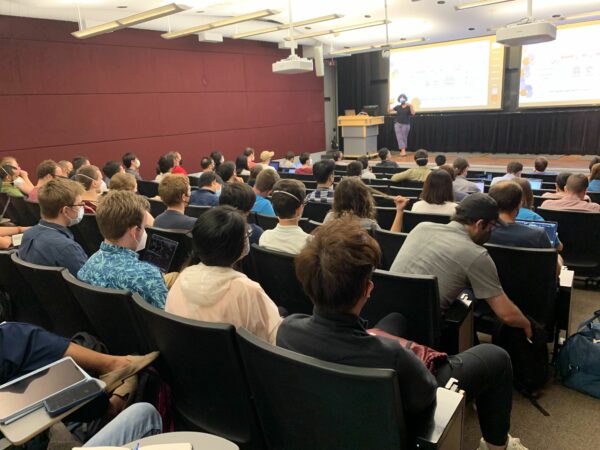

Leadership
-
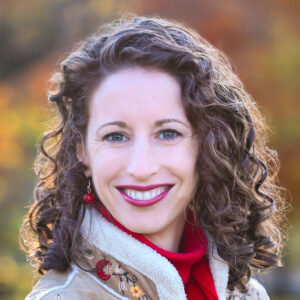
Rebecca Willett
Faculty Director of AI, Data Science Institute; Professor, Statistics, Computer Science, and the College -
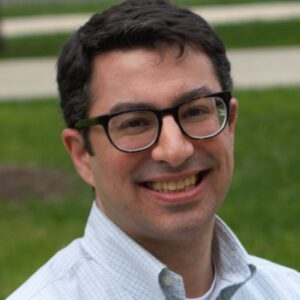
Aaron Dinner
Professor of Chemistry and Deputy Dean of the Physical Sciences Division -
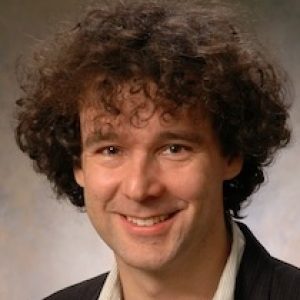
Risi Kondor
Associate Professor, Department of Computer Science, Department of Statistics, Computational and Applied Mathematics Initiative (CAMI) -
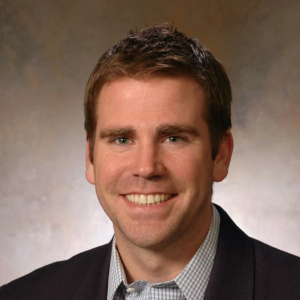
David Miller
Associate Professor, Dept. of Physics, Enrico Fermi Institute, and the College -
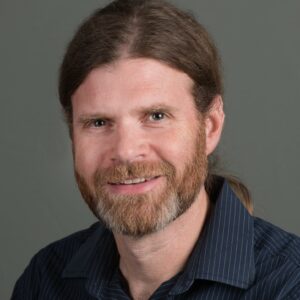
David Freedman
Professor of Neurobiology, Committees on Computational Neuroscience and Neurobiology -

Joshua Frieman
Professor and Chair of Astronomy and Astrophysics; Kavli Institute of Cosmological Physics -

Michael J. Franklin
Morton D. Hull Distinguished Service Professor; Senior Advisor to the Provost for Computing and Data Science; Faculty Co-Director, Data Science Institute -
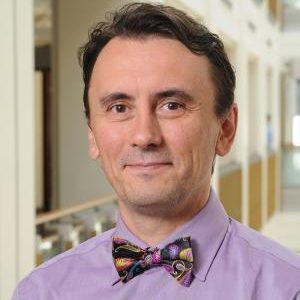
Dan Nicolae
Elaine M. and Samuel D. Kersten, Jr. Distinguished Service Professor, Departments of Statistics, Human Genetics, Medicine, and the College Section of Genetic Medicine; Faculty Co-Director, Data Science Institute -
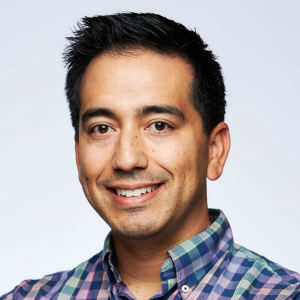
David Uminsky (he/him)
Executive Director, Data Science Institute; Senior Research Associate, Department of Computer Science -

Juan de Pablo
Executive Vice President for Science, Innovation, National Laboratories, and Global Initiatives, University of Chicago
Rebecca Willett is a Professor of Statistics and Computer Science at the University of Chicago. She completed her PhD in Electrical and Computer Engineering at Rice University in 2005 and was an Assistant then tenured Associate Professor of Electrical and Computer Engineering at Duke University from 2005 to 2013. She was an Associate Professor of Electrical and Computer Engineering, Harvey D. Spangler Faculty Scholar, and Fellow of the Wisconsin Institutes for Discovery at the University of Wisconsin-Madison from 2013 to 2018. Prof. Willett received the National Science Foundation CAREER Award in 2007, was a member of the DARPA Computer Science Study Group 2007-2011, and received an Air Force Office of Scientific Research Young Investigator Program award in 2010. Prof. Willett has also held visiting researcher positions at the Institute for Pure and Applied Mathematics at UCLA in 2004, the University of Wisconsin-Madison 2003-2005, the French National Institute for Research in Computer Science and Control (INRIA) in 2003, and the Applied Science Research and Development Laboratory at GE Medical Systems (now GE Healthcare) in 2002. Her research interests include network and imaging science with applications in medical imaging, wireless sensor networks, astronomy, and social networks. She is also an instructor for FEMMES (Females Excelling More in Math Engineering and Science; news article here) and a local exhibit leader for Sally Ride Festivals. She was a recipient of the National Science Foundation Graduate Research Fellowship, the Rice University Presidential Scholarship, the Society of Women Engineers Caterpillar Scholarship, and the Angier B. Duke Memorial Scholarship.
Risi Kondor is an Associate Professor in the Department of Computer Science, Statistics, and the Computational and Applied Mathematics Initiative at the University of Chicago. He joined the Flatiron Institute in 2019 as a Senior Research Scientist with the Center for Computational Mathematics. His research interests include computational harmonic analysis and machine learning. Kondor holds a Ph.D. in Computer Science from Columbia University, an MS in Knowledge Discovery and Data Mining from Carnegie Mellon University, and a BA in Mathematics from the University of Cambridge. He also holds a diploma in Computational Fluid Dynamics from the Von Karman Institute for Fluid Dynamics and a diploma in Physics from Eötvös Loránd University in Budapest.
David Miller’s research focuses on answering open questions about the fundamental structure of matter. By studying the quarks and gluons -—the particles that comprise everyday protons and neutrons —produced in the energetic collisions of protons at the Large Hadron Collider (LHC) at CERN in Geneva, Switzerland, Miller conducts measurements using the ATLAS Detector that will seek out the existence of never-before-seen particles, and characterize the particles and forces that we know of with greater precision. Miller’s work into the properties and measurements of the experimental signatures of these quarks and gluons –or jets” –is an integral piece of the puzzle used in the recent discovery of the Higgs bosons, searches for new massive particles that decay into boosted top quarks, as well as the hints that the elusive quark-gluon-plasma may have finally been observed in collisions of lead ions.
Besides studying these phenomena, Miller has worked extensively on the construction and operation of the ATLAS detector, including the calorimeter and tracking systems that allow for these detailed measurements. Upgrades to these systems involving colleagues at Argonne National Laboratory, CERN, and elsewhere present an enormous challenge and a significant amount of research over the next several years. Miller is also working with state-of-the art high-speed electronics for quickly deciphering the data collected by the ATLAS detector.
Miller received his PhD from Stanford University in 2011 and his BA in Physics from the University of Chicago in 2005. He was a McCormick Fellow in the Enrico Fermi Institute from 2011-2013.
David Freedman is a Professor in the Department of Neurobiology and the Neuroscience Institute at the University of Chicago. He has a broad background in cognitive, systems, and computational neuroscience, with expertise in electrophysiological approaches for recording neuronal population activity in awake non-human primates trained to perform complex behavioral tasks which require learning, memory, and decision-making. His research program also has a major focus on artificial intelligence (AI) approaches for studying neuroscience-related questions in artificial neural networks, and on designing novel biologically-inspired AI approaches. His research, supported by NIH, NSF, DOD, and private foundations, investigates the neuronal computations of higher-order perceptual and cognitive functions. Following graduate and postdoctoral training at MIT and Harvard Medical School, he established his laboratory at the University of Chicago in 2008, from which he has trained numerous graduate students and postdoctoral scholars that have successfully established their own independent research careers. His work has been recognized by the Troland Research Award from the National Academy of Sciences, the Vannevar Bush Faculty Fellowship from the Department of Defense, the NSF Career Award, and Faculty Fellowship Awards from the Sloan, McKnight, and Brain Research Foundations. In 2018, he received the University of Chicago Faculty Award for Excellence in Graduate Teaching and Mentoring.
Joshua Frieman is a Professor and Chair of the Department of Astronomy & Astrophysics at the University of Chicago, where he is a Senior Member of the Kavli Institute for Cosmological Physics. He is also a Distinguished Scientist and former Head of the Particle Physics Division at Fermilab. Frieman’s research spans theoretical and observational cosmology, including studies of the early universe, large-scale structure, gravitational lensing, supernovae, dark matter and dark energy. His research has increasingly relied on the use of machine learning techniques in the analysis of cosmic surveys, e.g., in estimating photometric redshifts, in automated artifact filtering of astronomical time-domain images, and in the discovery and modeling of strong gravitational lens systems. The co-author of over 600 publications, he was a co-founder and later Director of the Dark Energy Survey (DES), an international collaboration of 500 scientists from 25 institutions in 7 countries that carried out a six-year survey to map the Universe using a 570-megapixel camera it built for a 4-meter telescope in Chile. DES has cataloged several hundred million galaxies and discovered several thousand supernovae, yielding state-of-the-art measurements of cosmological parameters. Frieman previously played leadership roles in the Sloan Digital Sky Survey (SDSS) and led the SDSS-II Supernova Survey. Over 30 years, he has mentored over 40 postdocs and 20 graduate students at UChicago and Fermilab. He is active in outreach through public lectures (his “Probing the Dark Universe” has 7.5 million views on YouTube), K-12 school presentations, podcast interviews, and venues such as the World Science Festival. He is actively engaged in improving diversity and inclusion in STEM institutions.
Michael J. Franklin is the inaugural holder of the Liew Family Chair of Computer Science. An authority on databases, data analytics, data management and distributed systems, he also serves as senior advisor to the provost on computation and data science.
Previously, Franklin was the Thomas M. Siebel Professor of Computer Science and chair of the Computer Science Division of the Department of Electrical Engineering and Computer Sciences at the University of California, Berkeley. There, he co-founded Berkeley’s Algorithms, Machines and People Laboratory (AMPLab), a leading academic big data analytics research center. The AMPLab won a National Science Foundation CISE “Expeditions in Computing” award, which was announced as part of the White House Big Data Research initiative in March 2012, and received support from over 30 industrial sponsors. AMPLab created industry-changing open source Big Data software including Apache Spark and BDAS, the Berkeley Data Analytics Stack. At Berkeley, he also served as an executive committee member for the Berkeley Institute for Data Science, a campus-wide initiative to advance data science environments.
An energetic entrepreneur in addition to his academic work, Franklin founded and became chief technology officer of Truviso, a data analytics company acquired by Cisco Systems. He serves on the technical advisory boards of various data-driven technology companies and organizations.
Franklin is a Fellow of the Association for Computing Machinery and a two-time recipient of the ACM SIGMOD (Special Interest Group on Management of Data) “Test of Time” award. His many other honors include the outstanding advisor award from Berkeley’s Computer Science Graduate Student Association. He received the Ph.D. in Computer Science from the University of Wisconsin in 1993, a Master of Software Engineering from the Wang Institute of Graduate Studies in 1986, and the B.S. in Computer and Information Science from the University of Massachusetts in 1983.
Dan Nicolae obtained his Ph.D. in statistics from The University of Chicago and has been a faculty at the same institution since 1999, with appointments in Statistics (since 1999) and Medicine (since 2006). His research focus is on developing statistical and computational methods for understanding the human genetic variation and its influence on the risk for complex traits, with an emphasis on asthma related phenotypes. The current focus in his statistical genetics research is centered on data integration and system-level approaches using large datasets that include clinical and environmental data as well as various genetics/genomics data types: DNA variation, gene expression (RNA-seq), methylation and microbiome.
David Uminsky joined the University of Chicago in September 2020 as a senior research associate and Executive Director of Data Science. He was previously an associate professor of Mathematics and Executive Director of the Data Institute at University of San Francisco (USF). His research interests are in machine learning, signal processing, pattern formation, and dynamical systems. David is an associate editor of the Harvard Data Science Review. He was selected in 2015 by the National Academy of Sciences as a Kavli Frontiers of Science Fellow. He is also the founding Director of the BS in Data Science at USF and served as Director of the MS in Data Science program from 2014-2019. During the summer of 2018, David served as the Director of Research for the Mathematical Science Research Institute Undergrad Program on the topic of Mathematical Data Science.
Before joining USF he was a combined NSF and UC President’s Fellow at UCLA, where he was awarded the Chancellor’s Award for outstanding postdoctoral research. He holds a Ph.D. in Mathematics from Boston University and a BS in Mathematics from Harvey Mudd College.
As the Executive Vice President for Science, Innovation, National Laboratories, and Global Initiatives, Juan de Pablo helps drive and support the expanding reach of the University’s science, technology, and innovation efforts, along with their connection to policy and industry. He identifies and shapes emerging strategic scientific and technological initiatives, and provides oversight of entrepreneurship and innovation activities at the University’s Polsky Center for Entrepreneurship and Innovation. He also works with faculty, deans, and administrators to build global academic partnerships and international research collaborations while overseeing the University’s international centers. Juan de Pablo provides leadership for the University’s stewardship of two U.S. Department of Energy National Laboratories — Argonne and Fermilab — as institutions to advance science and technology in support of the nation’s interest. He collaborates with other leaders in research and innovation to build programs and links between and among the national laboratories and the University, as well as the Marine Biological Laboratory. A prominent molecular engineer, de Pablo focuses his research on polymers, biological macromolecules such as proteins and DNA, glasses, and liquid crystals, a diverse class of materials widely used in many fields of engineering.
Advisory Board
-
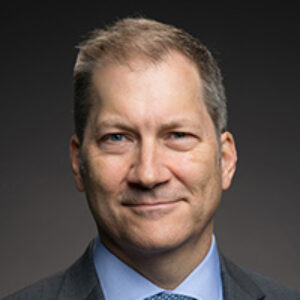
James Amundson
Head of the Scientific Computing Division, Fermi National Accelerator Laboratory -

Sarah Cobey
Associate Professor in the Department of Ecology and Evolution, the Program in Biophysics, and the Committee on Microbiology -
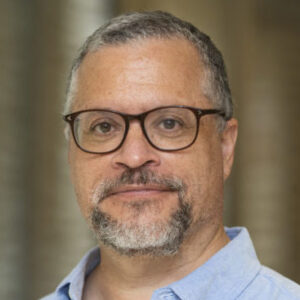
Kevin Corlette
Professor, Department of Mathematics; Director of the Institute for Mathematical and Statistical Innovation -

Juan de Pablo
Executive Vice President for Science, Innovation, National Laboratories, and Global Initiatives, University of Chicago -

Ian Foster
Arthur Holly Compton Distinguished Service Professor, Department of Computer Science; Distinguished Fellow, MCS Division, Argonne; Senior Scientist, MCS Division, Argonne -
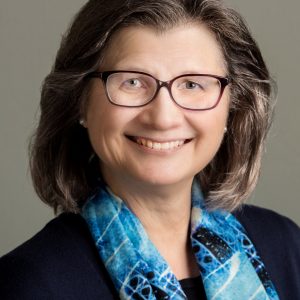
Maryellen Giger
A.N. Pritzker Professor of Radiology, Committee on Medical Physics, and the College at the University of Chicago -
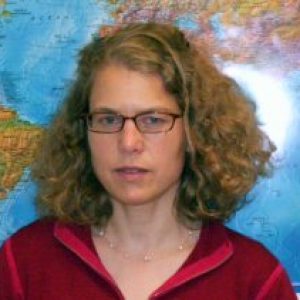
Elisabeth Moyer
Associate Professor, Department of the Geophysical Sciences -
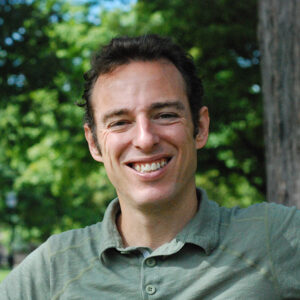
Matthew Stephens
Chair, Department of Statistics; Ralph W. Gerard Professor of Statistics, Human Genetics, and the College -

Laura Gagliardi
Richard and Kathy Leventhal Professor in the Department of Chemistry, the Pritzker School of Molecular Engineering, and the James Franck Institute. Director of the Chicago Center for Theoretical Chemistry. -
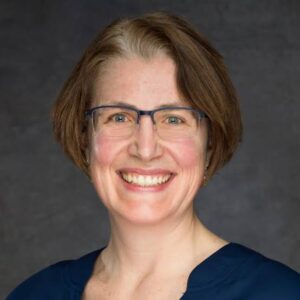
Margaret Gardel
Professor, Department of Physics, James Franck Institute & Institute for Biophysical Dynamics; Director, Material Research Science and Engineering Center -
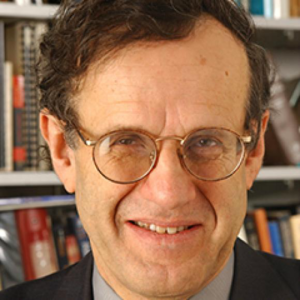
Robert Rosner
William E. Wrather Distinguished Service Professor, Astronomy & Astrophysics and Physics, Enrico Fermi Institute, and Harris School of Public Policy
James Amundson is the Head of the Fermilab Scientific Computing Division, which includes scientific computing facilities, services and software development as well as computational physics activities. His recent research work includes both computational accelerator physics and quantum computing applications. He is the lead principal investigator for the ComPASS4 accelerator simulation collaboration under the DOE SciDAC4 program. Amundson joined the laboratory in 1998 after having held positions as a visiting assistant professor and postdoctoral research associate at the University of Wisconsin and Michigan State University, respectively. He earned his Ph.D. in theoretical particle physics from the University of Chicago.
I am a professor in the Department of Ecology and Evolution, the Program in Biophysics, and the Committee on Microbiology at the University of Chicago. My group investigates the coevolution of pathogens and hosts’ adaptive immunity, and we use computational and mathematical tools to test hypotheses and to advance theory. My early work focused on the evolutionary consequences of immune-mediated competition between different pathogen strains, including influenza, pneumococcus, and human papillomavirus. More recently, my focus has expanded to include the dynamics of the host immune response: how chance, infection history, vaccination, age, and other factors shape responses over time. This research involves linking immunology, epidemiology, and virology with ecological and evolutionary principles, and I hope it can lead us to better vaccination strategies.
I graduated from Princeton University, obtained my PhD in Ecology and Evolution from the University of Michigan, and completed a NIH Ruth Kirschstein fellowship at the Harvard School of Public Health. At the University of Chicago, I have been awarded a NIH New Innovator Award, a McDonnell Foundation Complex Systems Scholar Award, and a Neubauer Faculty Development Fellowship.
My research interests lie in differential and algebraic geometry. I am particularly interested in Kahler geometry and locally symmetric spaces, as well as systems of partial differential equations with geometric meaning, such as the harmonic map and Yang-Mills equations.
As the Executive Vice President for Science, Innovation, National Laboratories, and Global Initiatives, Juan de Pablo helps drive and support the expanding reach of the University’s science, technology, and innovation efforts, along with their connection to policy and industry. He identifies and shapes emerging strategic scientific and technological initiatives, and provides oversight of entrepreneurship and innovation activities at the University’s Polsky Center for Entrepreneurship and Innovation. He also works with faculty, deans, and administrators to build global academic partnerships and international research collaborations while overseeing the University’s international centers. Juan de Pablo provides leadership for the University’s stewardship of two U.S. Department of Energy National Laboratories — Argonne and Fermilab — as institutions to advance science and technology in support of the nation’s interest. He collaborates with other leaders in research and innovation to build programs and links between and among the national laboratories and the University, as well as the Marine Biological Laboratory. A prominent molecular engineer, de Pablo focuses his research on polymers, biological macromolecules such as proteins and DNA, glasses, and liquid crystals, a diverse class of materials widely used in many fields of engineering.
Ian Foster is a computer scientist with a predilection for building software systems (and, more recently, for deploying services) that solve problems in the sciences. He likes to think that he is part of a movement that is re-inventing scholarship and education in an era of massive and pervasive computation–much as happened after the dawn of printing (1450) and the calculus (1687).
He is a Distinguished Fellow and Senior Scientist at Argonne National Laboratory and a Professor at the University of Chicago–two wonderful institutions where science and scholarship are cherished, and the importance of new forms of instrumentation as enablers of discovery is appreciated. He is also affiliated with the Department of Computer Science, Mathematics and Computer Science Division, and Institute for Molecular Engineering at the University and Argonne.
His research group, Globus Labs, engages talented students, postdocs, and staff in the challenge of making all research data accessible, discoverable, and usable. There they closely with Globus, which builds and operates cloud data services for the research community.
Maryellen L. Giger, Ph.D. is the A.N. Pritzker Professor of Radiology, Committee on Medical Physics, and the College at the University of Chicago. She is also the Vice-Chair of Radiology (Basic Science Research) and the immediate past Director of the CAMPEP-accredited Graduate Programs in Medical Physics/ Chair of the Committee on Medical Physics at the University. For over 30 years, she has conducted research on computer-aided diagnosis, including computer vision, machine learning, and deep learning, in the areas of breast cancer, lung cancer, prostate cancer, lupus, and bone diseases.
Over her career, she has served on various NIH, DOD, and other funding agencies’ study sections, and is now a member of the NIBIB Advisory Council of NIH. She is a former president of the American Association of Physicists in Medicine and a former president of the SPIE (the International Society of Optics and Photonics) and was the inaugural Editor-in-Chief of the SPIE Journal of Medical Imaging. She is a member of the National Academy of Engineering (NAE) and was awarded the William D. Coolidge Gold Medal from the American Association of Physicists in Medicine, the highest award given by the AAPM. She is a Fellow of AAPM, AIMBE, SPIE, SBMR, and IEEE, a recipient of the EMBS Academic Career Achievement Award, and is a current Hagler Institute Fellow at Texas A&M University. In 2013, Giger was named by the International Congress on Medical Physics (ICMP) as one of the 50 medical physicists with the most impact on the field in the last 50 years. In 2018, she received the iBIO iCON Innovator award.
She has more than 200 peer-reviewed publications (over 300 publications), has more than 30 patents and has mentored over 100 graduate students, residents, medical students, and undergraduate students. Her research in computational image-based analyses of breast cancer for risk assessment, diagnosis, prognosis, and response to therapy has yielded various translated components, and she is now using these image-based phenotypes, i.e., these “virtual biopsies” in imaging genomics association studies for discovery.
She is a cofounder, equity holder, and scientific advisor of Quantitative Insights, Inc., which started through the 2009-2010 New Venture Challenge at the University of Chicago. QI produces QuantX, the first FDA-cleared, machine-learning-driven system to aid in cancer diagnosis (CADx). In 2019, QuantX was named one of TIME magazine’s inventions of the year.
My research interests fall in two main threads. The first includes the use of the isotopic composition of atmospheric water vapor as a tracer of convective processes, cirrus formation, and stratosphere-troposphere exchange; and the design of spectroscopic techniques for in-situ trace gas measurements. The second includes climate (and human) response to greenhouse-gas forcing; development of tools for impacts assessment; statistical emulation of climate model output; and climate and energy policy evaluation.
My lab works on a wide variety of problems at the interface of Statistics and Genetics. We often tackle problems where novel statistical methods are required, or can learn something new compared with existing approaches. Thus, much of our research involves developing new statistical methodology, many of which have a non-trivial computational component. And because data sets are getting larger and larger our work often involves modern methods for “high-dimensional statistics”. Our work often makes extensive use of Bayesian hierarchical models to borrow information across data sets or sampling units.
Recently my lab has been increasingly focussed on making its research more open, reproducible and extensible. This is because I see this as the first step towards greater cooperation of scientists to achieve common goals.
See http://github.com/stephenslab/ash for an example of a recent project I conducted “in the open”. And see https://jdblischak.github.io/workflowr/ for an R package we have developed to help students and others make research websites of their analyses. In learning to do research this way, my lab uses git for version control, github for sharing code, and knitr and RStudio for helping make our R analyses clear and share-able.
Current research interests include:
- Sparsity, shrinkage, and false discovery rates, particularly for complex inter-related datasets.
- Factor Analysis, dimension reduction, and estimation of large covariance matrices.
- Clustering methods, and generalizations (eg grade of membership)
- Applications of multi-scale and wavelet methods to genomic data
- Reproducible research and open science
Laura Gagliardi is the Richard and Kathy Leventhal Professor in the Department of Chemistry, with joint appointments in the Pritzker School of Molecular Engineering and the James Franck Institute. She also directs the Chicago Center for Theoretical Chemistry.
Prof. Gagliardi became an assistant professor at the University of Palermo in 2002. In 2005, she became associate professor at the University of Geneva in Switzerland. She joined the University of Minnesota as a professor of chemistry in 2009, was appointed as Distinguished McKnight University Professor in 2014, and was awarded a McKnight Presidential Endowed Chair in 2018. She also also been serving as the director of the DOE-funded Energy Frontier Research Center called Inorganometallic Catalyst Design Center since 2014.
Gagliardi has received the Peter Debye Award in Physical Chemistry of the American Chemical Society, the Award in Theoretical Chemistry from the Physical Chemistry Division of the American Chemical Society, the Humboldt Research Award, and the Bourke Award of the Royal Society of Chemistry, among others. She is a fellow of the American Academy of Arts and Sciences, the American Physical Society, and the Royal Society of Chemistry. She is a member of Academia Europaea, the International Academy of Quantum Molecular Science, and the World Association of Theoretical and Computational Chemists. She is an associate editor of the Journal of Chemical Theory and Computation, which is the leading theoretical chemistry journal in the world.
Margaret Gardel is the Horace B. Horton Professor of Physics and Molecular Engineering at the University of Chicago. She joined the Department of Physics at the University of Chicago in 2007 after earning her ScB in physics and mathematics from Brown University in 1998, PhD from Harvard University in 2004, and completing postdoctoral research as a Pappalardo Fellow at MIT and at Scripps Research Institute from 2004-2007.
Her awards include a Packard Fellowship, Sloan Fellowship, and the NIH Pioneer Award. In 2013 she was named a Fellow of the American Physical Society. In 2019 she became a professsor at the Pritzker School of Molecular Engineering.
Robert Rosner is a theoretical physicist, on the faculty of the University of Chicago since 1987, where he is the William E. Wrather Distinguished Service Professor in the departments of Astronomy & Astrophysics and Physics, as well as in the Enrico Fermi Institute and the University of Chicago Harris School of Public Policy. He served as Argonne National Laboratory’s Chief Scientist and Associate Laboratory Director for Physical, Biological and Computational Sciences (2002–2005), and was Argonne’s Laboratory Director from 2005 to 2009; he was the founding chair of the U.S. Department of Energy’s National Laboratory Directors’ Council (2007–2009). His degrees are all in physics (BA, Brandeis University; PhD, Harvard University). He was elected to the American Academy of Arts and Sciences in 2001, and to the Norwegian Academy of Science and Letters (as a Foreign Member) in 2004; he is also a Fellow of the American Physical Society. Most of his scientific work has been related to fluid dynamics and plasma physics problems, as well as in applied mathematics and computational physics, especially in the development of modern high-performance computer simulation tools, with a particular interest in complex systems (ranging from astrophysical systems to nuclear fission reactors). Within the past few years, he has been increasingly involved in energy technologies, and in the public policy issues that relate to the development and deployment of various energy production and consumption technologies, including especially nuclear energy, the electrification of transport, and energy use in urban environments. He is the founding director of the Energy Policy Institute at the University of Chicago (EPIC), located at the University of Chicago Harris School of Public Policy and Booth School of Business.
